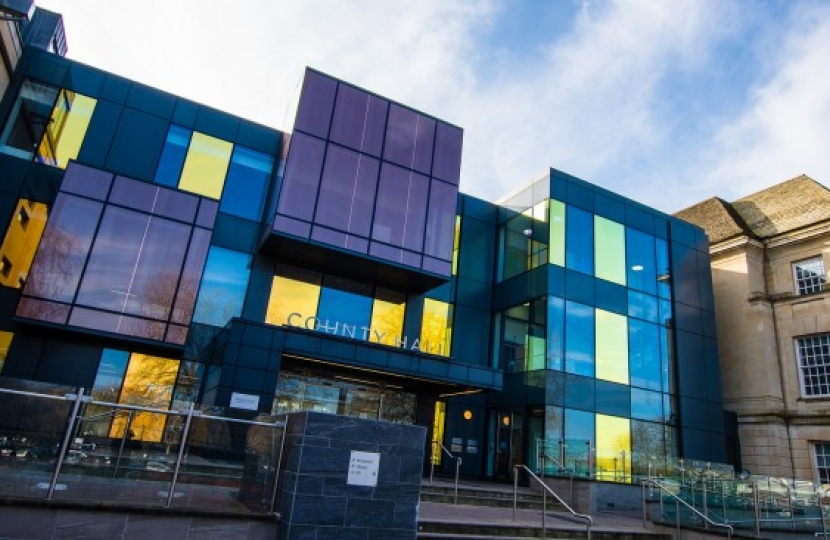
Following a year that has presented challenges like no other, Conservative led Wiltshire Council has outlined its £412m financial proposals to help the county and its residents get back on their feet - including setting aside a £4m fund over four years to support market towns hit hard during the pandemic.
The council is also proposing:
- A 1.99% general increase in basic council tax
- A £6.6m allocation for investment in Children's Social Care and a further £1.5m to respond to rising demand for special educational needs service
- A 3% levy specifically for Adult Social Care to address the £8.6m growth due to the increasing age demographic and needs of the residents of Wiltshire
- To increase investment in waste services by £2.6m to a total of £42.3m
- A reversal of the planned £1m reduction in Public Health funding
- A six-fold increase in its discretionary hardship fund to £300k, held to assist those families and residents that, after undertaking all avenues of support to reduce their council tax bill, need further support from the council
- An investment of over £2.1m to bring all its leisure service operations in-house
- An investment of nearly £2m to help fund the planned £214m investment in its capital programme, which includes:
- Investing over £22m in maintaining Wiltshire's road network.
- Investing over £23m in schools, including the replacement of the lower block at Stonehenge School.
- Continued investment of over £20m in the council's Health & Wellbeing centre sites, including the significant investment in Melksham Community Campus
- Continued investment into carbon reduction initiatives, with £3m for the final transition to LED streetlights and more than £4m for energy efficiency projects for its buildings and estate
- Investment of over £50m in housing for Wiltshire, with around 1,000 new council houses provided over the next 10 years
The council recognises that, following a year of unprecedented challenges, towns throughout the county will need support to help them recover. The £4m fund, made up of £1m a year for the next four years, will be set up to support Market Towns to recover and the exact use of the money will be determined in 2021/22.
Wiltshire Council estimates the direct impact felt from COVID-19 in the 2021/22 budget will be around £5m, which mainly takes into account the loss of income from services such as leisure, libraries and car parking but not the loss of council tax. However, the Cabinet is proposing a balanced budget in 2021/22 which builds on strong financial management, despite the challenges of COVID-19, and has seen the council also predicting a balanced 2020/21 budget.
The council will receive significant one off funding support from Government in 2021/22 in recognition of the ongoing response to the pandemic. The council recognises the need to maintain services, especially to vulnerable residents, and this has been of paramount importance in putting forward its budget proposals.
Conservative Cllr Pauline Church, Cabinet Member for Finance, Procurement and Commercial Investment, said:
"This is a budget like no other, and takes into account the quite extraordinary circumstances we find ourselves in.
Just like all local authorities, our finances have been hit hard by the pandemic, but our commitment and focus is to ensure our villages, towns, city, residents, businesses and communities get all the support they need to help them recover from the damage caused by the pandemic.
Of course there are challenges ahead, but we will still be investing in vital services and programmes to, not only help our communities recover, but to help them thrive.
We have always been diligent with our finances and that ensured we had a strong foundation in place to deal with the unexpected, even though we couldn't have predicted the profound impact COVID-19 has had.
Our proposals will now go through a transparent and rigorous scrutiny process and we look forward to talking through the decisions we have made and the all-important context behind them."
The budget will go through the following process before it goes forward to Full Council on 23 February:
- Members briefing
- Financial Planning Task Group
- Overview and Scrutiny Management Committee - budget scrutiny
- Cabinet
- Group leaders meet with Trade Union representatives
- Group leaders meet with non-domestic ratepayers
- Overview and scrutiny management committee - budget amendments
- Council summons published
View the draft 2021/22 budget proposals


